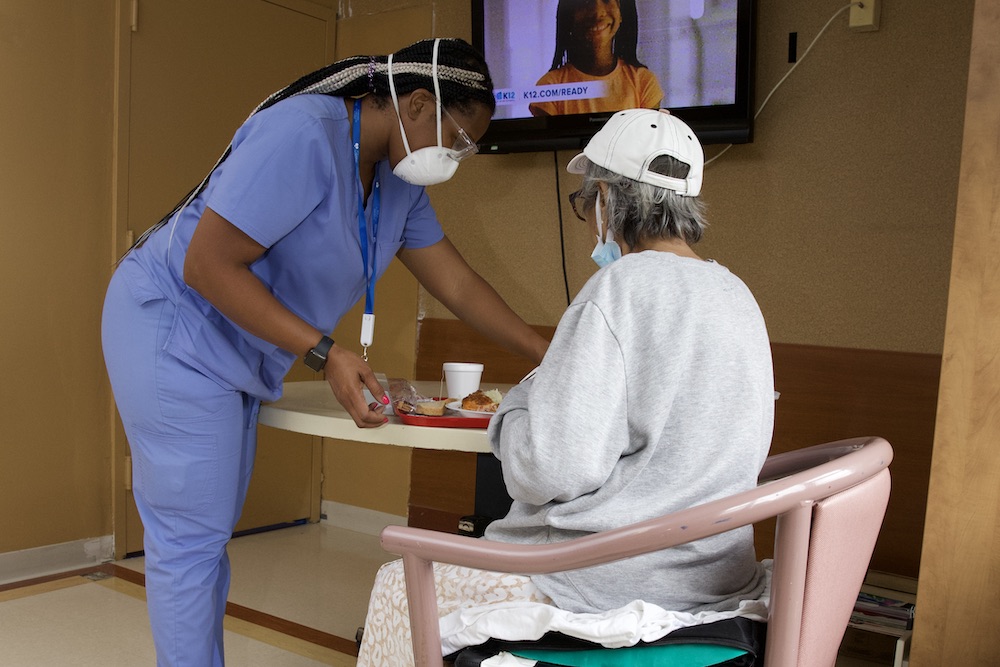How Long Does Post-Hospital Syndrome Last?
When hospitalized for any medical condition, illness, or injury, treatment and recovery are expected. What you may not expect is the risk of new problems related to your hospital stay. Such complications are referred to as post-hospital syndrome, which occurs when your body is healing but still weakened and vulnerable. New health risks arise due to stress, malnutrition, and other factors and could last several weeks.
For some individuals, your post-hospital or post-surgical care may involve rehab therapies. Some people require physical therapy to help them regain their strength and occupational therapy to regain self-care skills. Nursing care and other medical treatments may also be part of healing. For more information about the possible symptoms and recovery after a hospital stay, check out the following sections.

Symptoms Of Post-Hospital Syndrome
During a hospital stay, your medical team focuses on the treatment required for the illness or condition you’re dealing with. Unfortunately, several new issues could arrive after you’re discharged due to various disruptions in your health and routine. Such alterations cause several symptoms associated with post-hospital syndrome due to the body’s weakened state. These include:
- Mobility restrictions – A lack of physical activity is common during a hospital stay due to injury, weakness, or surgery. Others may have the option, though feel discouraged to move about. After prolonged inactivity, mobility decreases, as does strength, balance, and flexibility.
- Stress – Worrying about your condition, treatment, and recovery causes an increase in stress. Such high stress levels for prolonged periods release the hormones adrenaline and cortisol. Too much of these can cause heart problems, high blood pressure, stroke, anxiety, digestive issues, weight gain, and sleep issues.
- Malnutrition – For some medical issues, fasting is required for tests and procedures, which may cause post-hospital syndrome. Canceling or rescheduling these appointments disrupts feeding schedules even more. Depending on the condition, ingesting food through the mouth may be impossible, even temporarily, causing further nutritional issues. The longer such eating disruptions continue, the more your body lacks nutrients and energy, leading to complications.
- Sleep deprivation – Health concerns, stress, pain, discomfort, and nightly disruptions affect how well you sleep in the hospital. When your body isn’t well-rested, it can’t heal properly. As well as physical issues, you may also experience problems with cardiac or immune functions and cognitive performance.
- Cognitive issues – Stress, sleep deprivation, schedule disruptions, and information overload may cause post-hospital syndrome These include confusion and delirium, which can reduce motor functions and interest in daily activities.
These symptoms can last up to seven weeks after you’ve been discharged from the hospital. If you haven’t been hospitalized by that point, you’ll likely recover without a second hospital stay.
How do you regain strength after a hospital stay?
To avoid post-hospital syndrome, it’s best to resume your routine as soon as possible. This includes proper meal times, sleep habits, and a healthy diet.
Physical activity is also essential to increase blood flow, strength, flexibility, and mobility. For some individuals, resuming your previous exercise options works well. Others may require physical therapy to ensure they aren’t causing any damage to injured or repaired areas.
Resources:
This article contains informational and educational materials and does not replace health or medical advice. For questions or concerns regarding your medical condition or health objectives, speak to a qualified physician or healthcare provider.






Leave A Comment